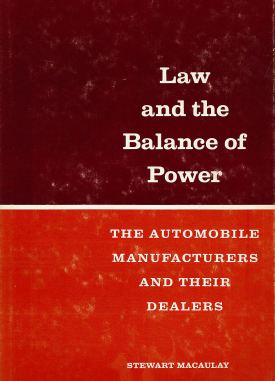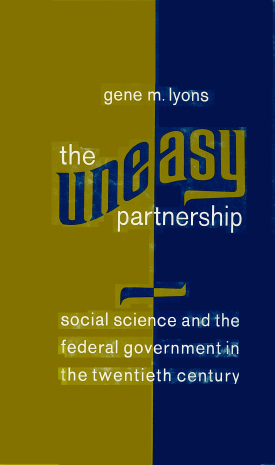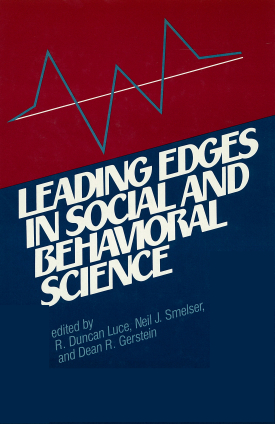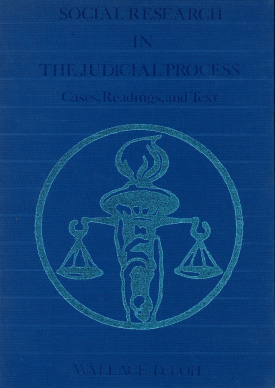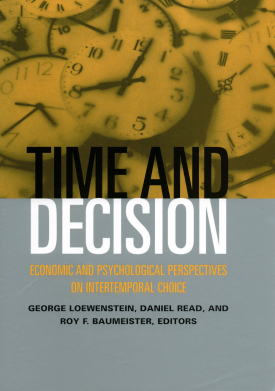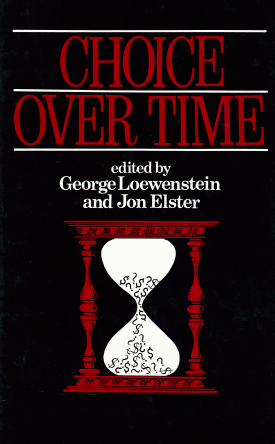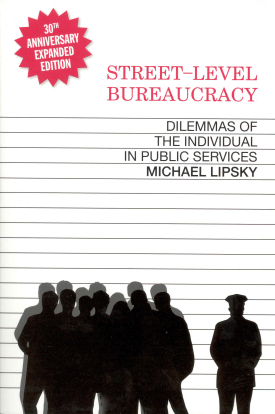The reach of the social and behavioral sciences is currently so broad and interdisciplinary that staying abreast of developments has become a daunting task. The thirty papers that constitute Leading Edges in Social and Behavioral Science provide a unique composite picture of recent findings and promising new research opportunities within most areas of social and behavioral research. Prepared by expert scholars under the auspices of the National Academy of Sciences, these timely and well-documented reports define research priorities for an impressive range of topics:
Part I: Mind and Brain
Part II: Behavior in Social Context
Part III: Choice and Allocation
Part IV: Evolving Institutions
Part V: Societies and International Orders
Part VI: Data and Analysis
R. DUNCAN LUCE is Distinguished Professor of Cognitive Science and director of the Irvine Research Center in Mathematic Behavioral Science at the University of California, Irvine.
NEIL J. SMELSER is University Professor of Sociology at the University of California, Berkeley.
DEAN R. GERSTEIN is study director at the National Research Council, National Academy of Sciences.
CONTRIBUTORS: Norma Graham, Linda Bartosik, Albert S. Bregman, Julian Hichberg, Azriel Rosenfeld, Michael Studdert-Kennedy, R. Duncan Luce, Richard Thompson, Carol Barnes, Thomas Carew, Lon Cooper, Michela Gallagher, Michael Posner, Robert Rescola, Daniel Schachter, Larry Squire, Alan Wagner, Saul Steinebers, Fergus I.M. Clark, John Jonedes, Walter Kinsch, Stephen M. Kosslyn, James L. McClelland, Raymond S. Nickerson, James Greeno, Frederick J. Newmeyer, Antonio R. Damasio, Merrill Garrett, Mark Lieberman, David Lightfoot, Howard Poizner, Thomas Roeper, Eleanor Saffran, Ivan Sag, Victoria Fromkin, Herbert Pick, Ann L. Brown, Carol Dweck, Robert Emde, Frank Keil, David Klahr, Ross S. Parke, Steven Pinker, Rochel Gelman, David S. Krantz, Leonard Epstein, Norman Garmezy, Marcha Ory, Leonard Perlin, Judith Rodin, Marvin Stein, John F. Kihlstrom, Ellen Berscheid, John Darley, Reid Hastie, Harold Kelley, Sheldon Stryker, Edward E. Jones, Nancy M,. Henley, Rose Laub Cosner, Jane Flax, Naomi Quinn, Kathryn Rish Sklar, Sherry B. Ortner, Alfred Blumstein, Richard Berk, Philip Cook, David Farrington, Samuel Krislov, Albert J. Reiss Jr., Franklin Zimring, William Riker, James S. Coleman, Bernard Grofman, Michael Hechter, John Ledyard, Charles Plott, Kenneth Shepsle, John Ferejohn, Mark Machina, Robin Hogarth, Kenneth MacCrimmon, John Roberts, Alvin Roth, Paul Slovic, Rihard Thaler, Oliver Williamson, Jerry Hausman, Paul Joskow, Roger Noll, Vernon Smith, David Wise, Stanley Reiter, Kenneth Arrow, Lance Davis, Paul Dimaggio, Mark Granovetter, Jerry Green, Theodore Groves, Michael Hannan, Andrew Postlewaite, Roy Radner, Karl Shell, Leonid Hurwicz, Frank Stafford, Jamoes Baron, Danier Hamermesh, Christopher Jencks, Ross Stolzenberg, Donald J. Treiman, Stanley Fischer, William Beeman, Rudiger Dornbusch, Thomas Sargent, Robert Schiller, Lawrence Summers, Glynn Isaac, Robert Blumenschine, Margaret Conkey, Terry Deacon, Irven Devore, Peter Ellison, Richard Milton, David Pilbeam, Richard Potts, Kathy Schick, Margaret Schoeninger, Andrew Sillen, John Speth, Nicholas Toth, Sherwood Washburn, Douglas C. North, Robert Bates, Robert Brenner, Elizabeth Colson, Kent Flannery, Vernon Smith, Neil Smelser, Samuel Preson, Ansley Coale, Kingsley Davis, Geoffrey McNicoll, Jane Menken, T. Paul Schultz, Daniel Vining, John Modell, Margaret Clark, William Goode, William Kessen, Robert Willis, John Quigley, Alex Anas, Geoffrey Hewings, Risa Palm, James Fernandez, Keith Basso, Karen Blu, Kenneth Boulding, Stepher Gudeman, Michael Kearney, Goerge Marcus, Dennis McGilvary, Emiko Ohnuki-Tierney, William Sewell, Daniel H. Levine, Leonard Binder, Thomas Bruneau, Jean Comaroff, Susan Harding, Charles Keyes, Robert Wuthnow, Dorothy Nelkin, Charles Rosenberg, Theda Skocpol, Martin Bulmer, Thomas Joster, Donald McCloskey, Arnold Thackeray, Carol Weiss, Peter Evans, Bruce Cumings, Albert Fishlow, Peter Gourevitch, John Meyer, Alejandro Portes, Barbara Stallings, Robert Jervis, Josh Lederberg, Robert North, Steven Rosen, Dina Zinnes, Warren Miller, Martin David, James Davis, Bruce Russett, Kimball Romney, Norman Bradburn, J. Douglas Carol. Roy D'Andrade, Jean Claude Falmagne, Paul Holland, Lawrence Hubert, Edward E. Leamer, John W. Pratt, Cliffors C. Clogg, Bert F. Green, Michael Hannan, Jerry A. Hausman, William H. Kruskal, Donald B. Rubin, I. Richard Savaga, John W. Turkey, Kenneth W. Wachter, Leo A. Goodman.
